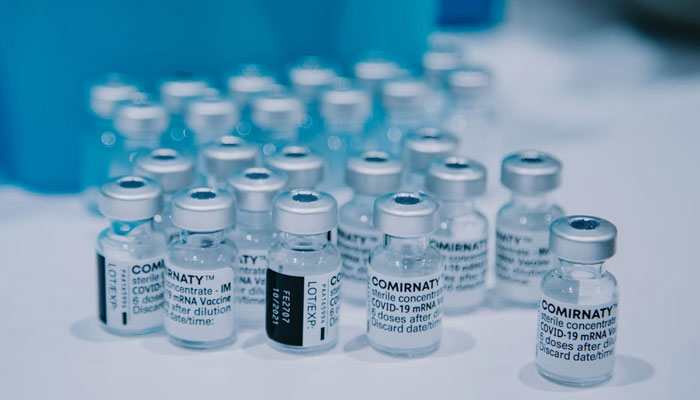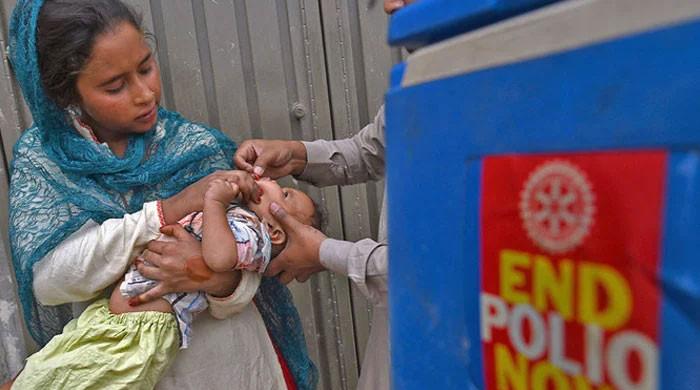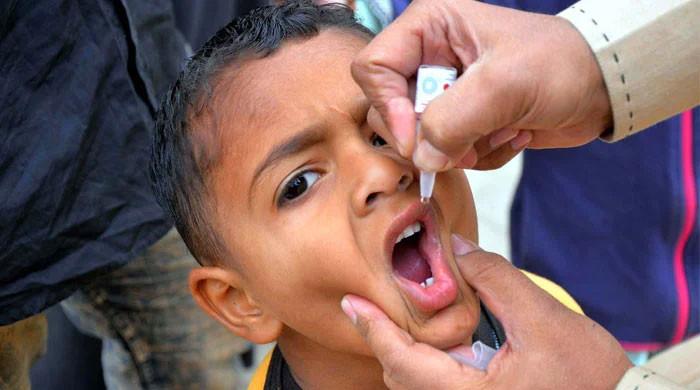mRNA vaccine shows 'promising results against melanoma'
mRNA vaccines would be used to reduce cancer recurrence instead of preventing or shrinking the cancer tumour
April 17, 2023

The mRNA vaccine technology which was originally focused on cancers can now be used to treat infectious diseases, revealed a new study.
The study, according to USA Today, highlighted that mRNA vaccine jabs helped to prevent recurrences of skin cancer melanoma.
The study was presented on Sunday at a research conference that highlighted "after nearly two years, patients who received mRNA vaccine jabs created by Moderna and Merck 44% avoided new tumours and were more likely to be alive than those who received normal cancer care".
Melanoma is identified in 100,000 US citizens annually. The patient survival years are five if identified early however, one-third of patients with widespread cancer don't live that long.
A similar kind of longer study on the subject is planned at the end of this year if the results are promising for a wide range of people.
After its testing and failing for decades-long time, the study will prove to be a breakthrough for cancer vaccines.
A co-author of the study and an oncologist at Mass General Cancer Center Dr Ryan Sullivan said: "It's probably the first real data that suggests that this personalized approach to vaccination may be worth exploring further".
The mRNA vaccines would be used to reduce cancer recurrence instead of preventing or shrinking the cancer tumour.
Dr Robert Vonderheide said: "This represents a big shift in how we're using cancer vaccines." He was not involved in the study but is the program committee chair of the American Association for Cancer Research's annual meeting, where the study was presented.
The pandemic proved that mRNA vaccines, already in development for cancer, could be used safely and developed quickly, said Vonderheide, who also directs the Abramson Cancer Center at the University of Pennsylvania.
The study suggests that the positive results seen in controlling melanoma — through the immune system — can also control other types of cancers, several experts maintained. The next vaccine will be tested on non-small-cell lung cancer which kills 100,000 in the US.
An expert maintained that it was vital to test this vaccine over melanoma.
Dr Rodabe Amaria, a melanoma oncologist at MD Anderson Cancer Center in Houston said "No cancer is as immunotherapy sensitive as melanoma is. You have to prove it in melanoma before you try it in other cancers."
How do mRNA vaccines work?
Scientists collect unique protein samples from cancer cells — not present in healthy human cells. The vaccine recognises the proteins and triggers human response killing the cancer cells without damaging healthy cells. The vaccine must be designed specifically to treat a particular patient.
Dr Eliav Barr, chief medical officer of Merck, which supported the trial of the study said Researchers aren't sure how many neoantigens to target or which are likely to offer the most benefit, so we cram in as many potential neoantigens as possible."
During the study 107 volunteers received an experimental vaccine and pembrolizumab drug, the cancer returned in 24 (22%) within two years. The diseases recurred in 20 (40%) of the 50 people who took only pembrolizumab (pembro).
Pembrolizumab drug is used until the vaccine is manufactured which takes around the time of eight weeks.
"We're already reaping those benefits (from pembro), and now, in such a short period of time to have an additional therapeutic agent that builds on that progress is a very exciting thing," Amaria said.
Jeffrey Weber, who led the new study and is the deputy director of the Perlmutter Cancer Center at NYU Langone, said he's optimistic about the future of mRNA vaccines against cancer.
"It's got a ways to go, but I do believe that these results will hold up over time," he noted.











